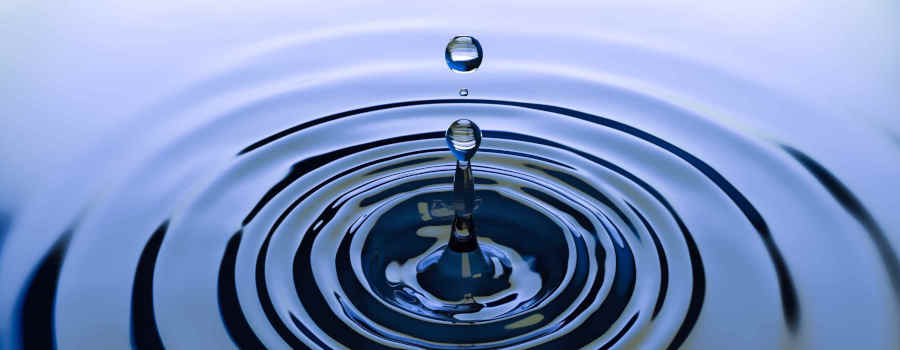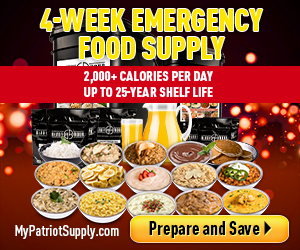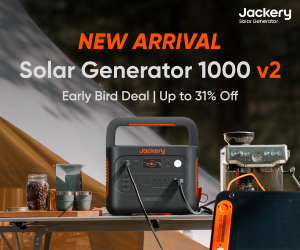Water Filters For Emergencies
Survival Manual

I have covered water filters that you can make without anything other than stuff that nature provides. However, filters such as this one, which even filters out bacteria (Water Filter Link) take time and energy. If you are busting your butt trying to get a shelter built for you and your family spending time on making a filter is critical time squandered.
I view store bought water filters as a temporary tool to help you get over the hump of establishing yourself post apocalypse. Therefore, stocking up on this one item in my opinion is extremely prudent.
Clean drinking water is the first thing people that aren't prepping will run out of, even before food. And coincidentally, water is actually more important that food as you will die of thirst long before you die of starvation.
For everyone, having a reliable water source is essential. Clean water is critical not only for drinking but also for cooking, hygiene, and overall survival. Natural disasters, economic collapse, and other crises can disrupt regular water supplies, making it crucial to have a dependable water filtration system.
Types of Water Filters
1. Mechanical Filters
Mechanical filters work by physically removing particles from water. They are often the first line of defense in water purification and come in various forms:
- Ceramic Filters: Made from porous ceramic material, these filters can remove bacteria, protozoa, and sediments down to 0.2 microns. They are durable and can be cleaned and reused multiple times. - Fiber Filters: These use hollow fibers to filter out contaminants. They are lightweight and easy to use. Fiber filters are effective at removing bacteria and protozoa but may not filter out viruses unless they have additional purification methods.
2. Activated Carbon Filters
Activated carbon filters use a carbon-based medium to remove contaminants through adsorption. They are effective at improving taste and odor, removing chlorine, and reducing some organic chemicals. However, they are not reliable for removing viruses or heavy metals unless combined with other filtration methods. The Brita filters and the LifeStraw are both popular filters of this category.
3. UV Purifiers
UV (ultraviolet) purifiers use UV light to kill bacteria, viruses, and protozoa. They are effective against microorganisms but require a power source and clear water. UV purifiers should really only be used conjunction with filters. The SteriPEN and the LuminAid are well-known UV purifiers.
4. Reverse Osmosis(RO)
RO systems use a semi-permeable membrane to remove a wide range of contaminants, including bacteria, viruses, heavy metals, and dissolved salts. They are highly effective but can be complex and require significant water pressure. RO systems are more suitable for long-term setups rather than portable solutions.
5. Pump Filters
Pump filters are manual devices that require pumping action to push water through a filter. They are useful for filtering larger quantities of water and are commonly used in outdoor or survival situations. They often combine mechanical and activated carbon filtration.

Which filter or better yet, filters, that you choose is dependant on each individual's situation. For example, do you live in a city versus out in the country. In the latter you might not need to start over from scratch. You might be able to live in your current place of residence. However, for the former you will at some point need to abandon you home and strike out to find a new home. A new home in a place that provides you with a water supply and a means of providing food for yourself.
When decideing which water filters to purchase and how many condsider YOUR potential situation. Here are some factors to consider.
1. Water Source
Identify the types of water sources you may need to filter, such as lakes, rivers, or stored water. Different filters handle various contaminants, so choose a system suited to your anticipated water sources.
2. Portability vs. Capacity
Do you need a portable filter for on-the-go use or only larger system for home use. Portable filters by definition are compact and lightweight but may have limited capacity, while larger systems can filter more water but are less portable. I strongly think a few portable filters is prudent even if you think you will not need them.
3. Contaminant Types
Understand the types of contaminants in your water source. For instance, if you are concerned about viruses, you will need a filter that can address that specific issue, such as a UV purifier or an RO system.
4. Maintenance and Longevity
Consider the maintenance requirements of the filter. Some filters need regular cleaning or replacement of cartridges. Ensure you have access to replacement parts and extra cartfidges.
Conclusion
For preppers, selecting the right water filter is a crucial aspect of survival planning. Understanding the various types of filters, their functions, and their suitability for different scenarios will help you ensure a reliable and safe water supply. Whether you need a compact filter for emergencies or a robust system for long-term use, investing in a water filtration system is essential for maintaining health and safety in many emergency situations. You can make an informed decision and be better prepared for whatever challenges lie ahead, by considering your specific needs and the factors covered above.



